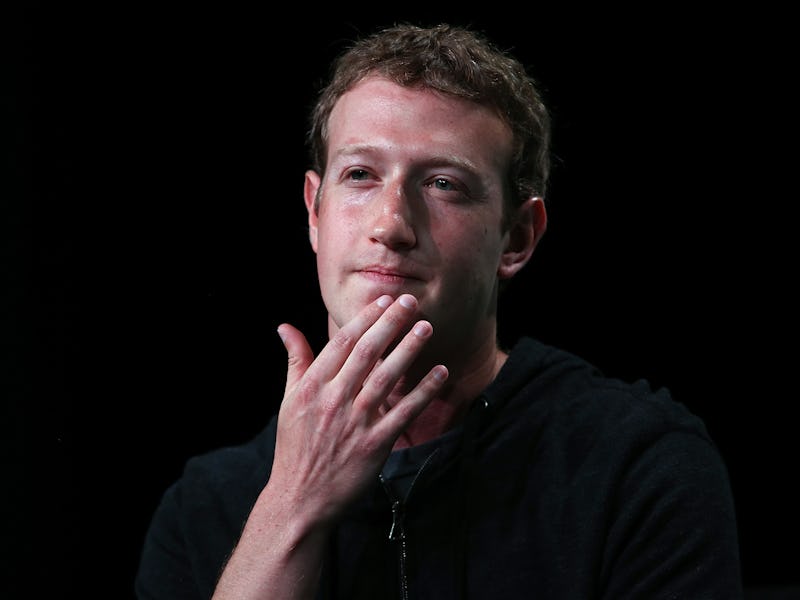Here's What Facebook's New DARPA-esque "Building 8" Lab May Work On
The lab has hired Regina Dugan, the former leader of the Pentagon's DARPA research facility.

Facebook has revealed the existence of a new group called “Building 8,” dedicated to researching and developing exciting new hardware products. “We’ll be investing hundreds of people and hundreds of millions of dollars into this effort over the next few years,” Mark Zuckerberg wrote in a Facebook post Wednesday, explaining that the team will be working based on the 10-year roadmap made public at the F8 conference.
Zuckerberg has hired Regina Dugan, the former head of the Defense Advanced Research Projects Agency (DARPA) to spearhead the new lab.
So, what exactly could this secretive team be working on? Zuckerberg says the team will be working on “augmented and virtual reality, artificial intelligence, connectivity and other important areas.” Here’s what that means.
Augmented and virtual reality
The Wall Street Journal said that Building 8 will focus on making hardware similar to the 360-degree camera the company showed off earlier this week. The Facebook Surround 360 can capture everything in its surroundings in 3D, ideal for capturing video for virtual reality playback. The device is open-sourced, so hardware makers can come up with their own takes on the internals and build their own versions.
Where to next? Facebook owns Oculus, one of the big players in virtual reality headgear. A future application for social networking could see Oculus meetups in virtual space – like the social VR demonstration Facebook execs gave Wednesday at F8 – become a reality. Imagine playing Jenga, in a virtual room, with someone from across the globe. Or catching up with long lost relatives, no matter where they may be, as if they were actually standing in front of you.
Artificial intelligence
Zuckerberg caused a big stir with his push for chatbots in Messenger. The idea would be that a user could ask a robot for help with, say, ordering flowers, simply by telling the robot whom you want to send the flowers to. Pretty nifty.
But Facebook has been building A.I. in ways that most users may not even spot. Take, for example, the iOS app, which recently got an update that could read out what was in a picture, so visually impaired users could get an idea of what’s on the screen. The feature is called Automatic Alternative Text, and it’s an exciting preview of what Facebook may have in mind next.
Connectivity
Using a combination of drones, lasers, and satellites, Zuckerberg wants to expand internet connectivity around the world. Going forward, the company has plans to launch a new satellite in the next few months that will improve connectivity in sub-Saharan Africa.
However, it may not be smooth sailing for Facebook’s connectivity efforts. The “Free Basics” effort has been derided by critics as a form of “digital colonialism.” The service offers a limited number of services to users in developing countries for free, but critics fear it as a way to exert influence and control through profit-driven market expansion.